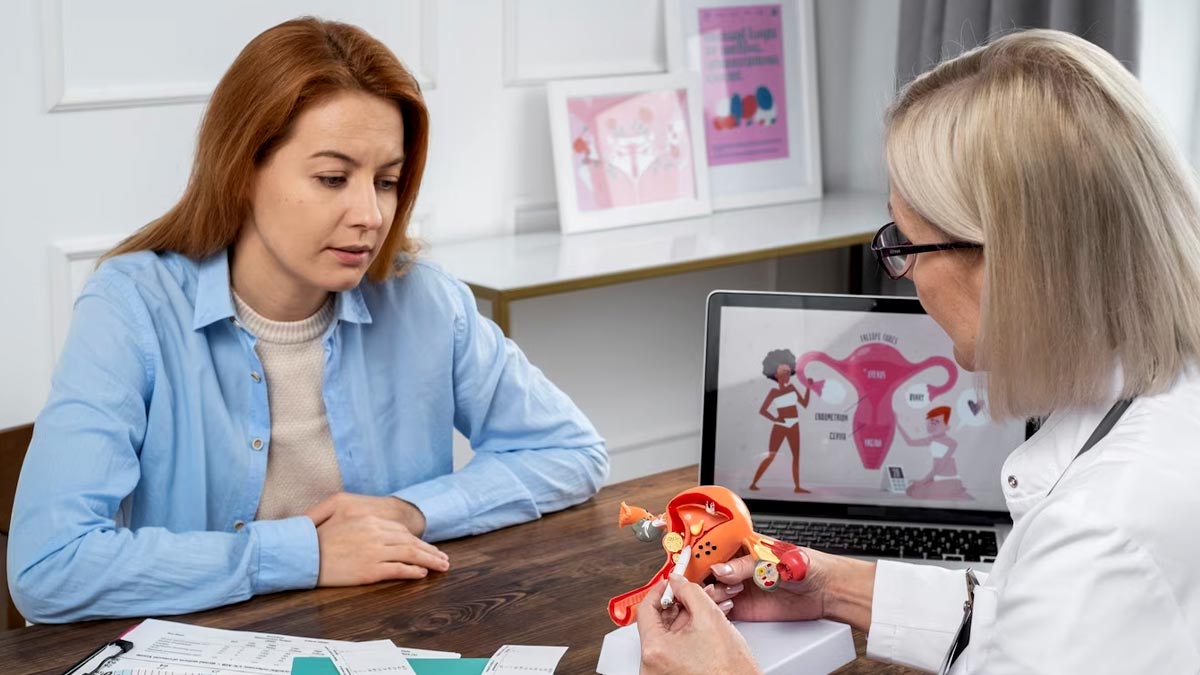
While vulvar cancer might not be as commonly discussed as some other types of cancer, its impact on women's health is significant. Vulvar cancer is a rare form of cancer that develops in the vulva, the outer portion of a woman's genitalia. The cancer typically originates in the skin cells of the vulva and can manifest in various forms, such as squamous cell carcinoma, which accounts for the majority of cases, and less commonly, melanoma and adenocarcinoma.
Table of Content:-
We spoke to our expert Dr G Vamshi Krishna Reddy, Director, Oncology Services, Consultant Medical Oncologist and Hemato Oncologist, Yashoda Hospitals, Hyderabad, who explained vulvar cancer, its symptoms, causes, and prevention.

Dr Reddy said, "Vulva or the external genitals in women consists of the mons pubis, labia majora, labia minora, clitoris and glands around the vagina. Vulvar Cancer is an uncommon cancer arising from the external genitalia of women. This cancer is mostly seen in post-menopausal and elderly women." According to the Journal of Obstetrics and Gynecology of India, a total of 5% of all female genital tract cancers are vulva carcinoma, the fourth most frequent malignancy in women.
Symptoms Of Vulvar Cancer

Dr Reddy said, “Vulvar cancer typically presents with a vulvar lesion which may be asymptomatic most of the time. However, few may complain of itching, pain, lump or bleeding. The symptoms may be seen more commonly in other noncancerous conditions also, so it is suggested to consult your doctor if you have any of these symptoms persistently.”
Be vigilant to observe these changes on your vulva:
- Thick or rough skin patches
- Recent skin colour changes or white patches
- Ulcers that do not heal
- Warts or growths
- Bleeding that is unrelated to menstruation
- Pain during sex or while peeing
Also Read: World Ovarian Cancer Day 2023: Can Untreated PCOS Lead To Ovarian Cancer?
Causes Of Vulvar Cancer

There are various risk factors for vulvar cancer, but the two common causes are:
- Human papillomavirus infection, especially HPV 16 and 33 strains
- Lichen Sclerosus
Persistent HPV infection with the 16 and 33 strains is also one of the common causes. Other risk factors include:
- Multiple sexual partners
- History of warts
- Cigarette smoking
- HIV infection
Prevention Of Vulvar Cancer
Dr Reddy said, "HPV vaccination helps in prevention before infection. Therefore, it is suggested to vaccinate young girls before they are infected with the HPV virus. HPV vaccine is now widely available and should be administered between 9-26 years of age."
Dr Reddy added, “Regular self-examination in women with lichen sclerosis (a condition that causes patchy, discoloured, thin skin) should be encouraged. There are no specific screening tests for vulvar cancer, therefore, routine gynaecological check-ups can aid in early detection and treatment if any abnormalities are identified.”
Also Read: World Ovarian Cancer Day 2023: Can Untreated PCOS Lead To Ovarian Cancer?
Treatment Of Vulva Cancer

Dr Reddy informed, "Fortunately, the majority of the cases of vulvar cancer are diagnosed in the early stage. The diagnosis is confirmed with the help of a biopsy. The treatment plan is decided based on the stage after confirmation of the type of vulvar cancer."
Surgery is the usual treatment option for early-stage vulvar cancer. Chemotherapy and radiation therapy may be needed in a few patients with advanced-stage vulvar cancer when surgery is not possible.
Conclusion
Dr Reddy concluded, “Vulvar cancer is an uncommon gynaecologic cancer presenting as vulvar growth, ulcer or skin lesion with associated pain or itching. It is commonly attributed to HPV infection. HPV vaccination is the only preventive option available. Please consider self-examination of the genital area and consult your doctor if you notice any abnormal signs.”
Disclaimer
The information in this article is provided by a registered healthcare professional and is for informational purposes only. Therefore, consult with your doctor if you notice any symptoms or complications for a treatment tailored to your needs.
Also watch this video
How we keep this article up to date:
We work with experts and keep a close eye on the latest in health and wellness. Whenever there is a new research or helpful information, we update our articles with accurate and useful advice.
Current Version